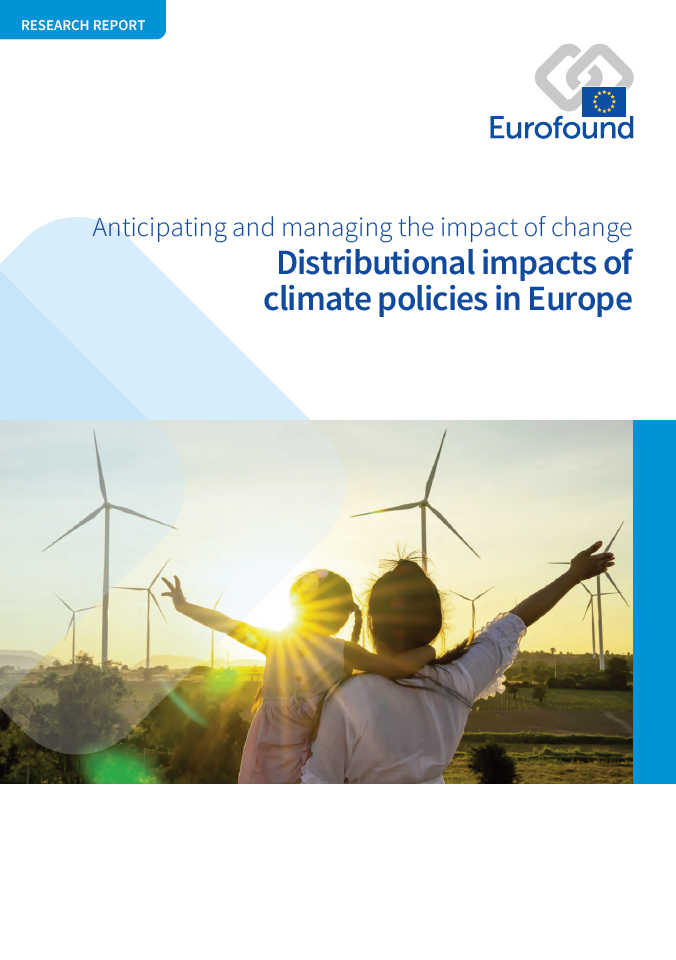
Con il Green Deal europeo, l’UE sta mettendo in moto una serie di politiche e misure finalizzate a prevenire e alleviare gli effetti dei cambiamenti climatici. L’obiettivo principale è intraprendere la transizione verso un’economia climaticamente neutra. Tuttavia, le tanto necessarie politiche per il clima possono avere effetti distributivi indesiderati su individui e imprese. Oltre ai loro effetti previsti, alcune misure, come le imposte sulle emissioni di carbonio, possono essere associate a effetti regressivi, ripercuotendosi negativamente sulle persone con livelli di reddito più bassi e risultando pertanto meno accettabili. Sulla base delle esperienze nazionali più recenti, la presente relazione identifica le politiche per il clima che hanno effetti distributivi significativi e analizza in che modo questi effetti vengono affrontati nei vari Stati membri. Inoltre, la relazione identifica e descrive le principali questioni e gli attori del dibattito pubblico in corso sugli impatti socioeconomici delle politiche climatiche.
Key findings
Energy or fuel poverty is recognised as a severe problem in many Member States and this is mainly addressed through financial support. Alternative funding models should be explored, such as grants for housing associations and local authorities to deliver energy-efficient upgrades to buildings, community municipal bonds and green equity schemes.
When designing policy measures aimed at achieving the goal of climate-neutral policies, Member States must take a cross-departmental approach to account for the different socioeconomic effects, as workers, population groups, industries and regions are affected differently.
The management of a just transition is supported by EU and national funds, which provide opportunities for adopting a comprehensive and systemic approach rather than single-point solutions. Drawing up a plan for the future of industries and workers offers prospects to the regional and national economy.
The capacity of social dialogue needs to be strengthened to address distributional effects and facilitate a just transition. Evidence shows that the undesired effects of some climate policies, especially as they affect firms and workers in certain sectors and regions, can be addressed by social partners, and solutions can be achieved through social dialogue and joint initiatives.
The Just Transition Platform could be further developed as an EU hub for sharing national experiences on climate measures beyond the Just Transition Mechanism. While also coordinating with other EU-level initiatives with similar goals, the knowledge to be shared could include, for instance, national or regional experiences with carbon taxes, industrial standards, or public investments.
List of tables
- Table 1: Main socioeconomic challenges and considerations in selected national long-term strategies (LTS), mid-2020
- Table 2: Examples of subsidies, tax breaks and exemptions with progressive and regressive effects
- Table 3: Examples of public investments with progressive effects
- Table 4: Information to be provided by respondents on climate policy measures and their distributional effects
- Number of pages
-
72
- Reference nº
-
EF20037
- ISBN
-
978-92-897-2183-7
- Catalogue nº
-
TJ-02-21-743-EN-N
- DOI
-
10.2806/44388
- Permalink
Cite this publication
Eurofound (2021), Distributional impacts of climate policies in Europe, Publications Office of the European Union, Luxembourg